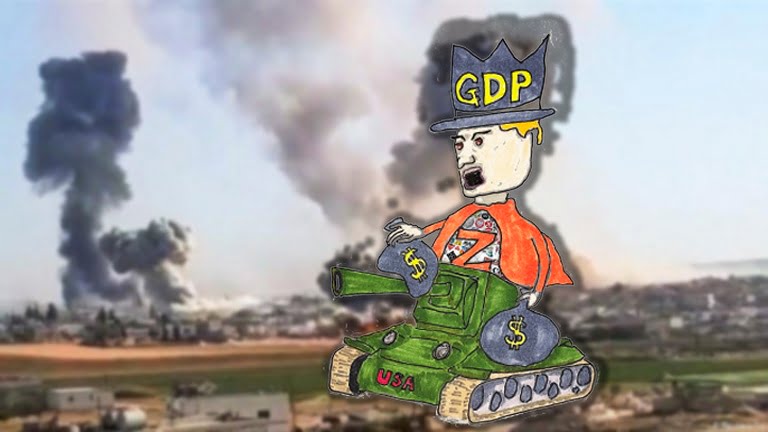
The rationale over how we account for GDP is important. The United States has a disproportionately unfair and unjust advantage over most other countries over how it accounts for military expenditures.
The US BEA pushed for these accounting revisions before the UN System of National Accounts back in 2008. Arguing that “national security” benefits our national income as a fixed asset is a spurious logic that only benefits militarized economies, especially considering that the more just, fair and equitable “ecological security” was rejected.
Fixed assets are essentially infrastructure, or “common good” accounts that CANNOT easily be converted into cash. What the US did was change how we accounted for weapon systems, away from being an inventoried expenditure, something we account for when we take it off the shelf.
Imagine that in 2008, we could just as easily have had environmental degradation and resource depletion and household work accounted for in our national income estimates.
Here is the argument from the U.S. Bureau of Economic Analysis as to why Military Weapon Systems need to be treated as a fixed asset:
“The 1993 SNA states that destructive military weapon systems designed for combat, such as warships, fighter aircraft, and tanks, should be treated as intermediate consumption by general government rather than as fixed assets. This treatment is problematic for several reasons:
- It fails to recognise that weapon systems provide a nation with economic benefits by protecting the liberty and property of its citizens.
- It fails to recognise the role of capital in the production of defence services.
- It fails to recognise that existing military equipment have value and can be sold.
- When a government sells or transfers used military equipment, the treatment requires a counter-intuitive accounting entry of negative intermediate consumption.
- The distinction between destructive equipment and non-destructive equipment that can be used for peaceful purposes is difficult to make in practice.
- The treatment of military equipment used by the military is inconsistent with the treatment of the same equipment (for example, armoured vehicles) used by internal police.
- The treatment is inconsistent with the latest international public sector financial accounting standards.
- Many countries now maintain military equipment for long periods and are concerned about scheduling and providing for its replacement. “
To be clear, high GDP does not always mean that countries need to focus on military systems. Sometimes, as in the case with China, it really does mean positive growth of national income. The difference is that in China, the evidence is tangible with the rise of living standards and the hundreds of millions of people having moved out of poverty over the last two decades. Contrast that with the United States where millions have fallen out of the middle class and stagnant wages have only increased the cost of living. If people have less financial security and environments become more fragile when GDP increases, then clearly there is something wrong with how we account.
Imagine if ecological justice hawks and warrior accountants were sitting at this table rather than war department weapons industry and war machine lobbyists.
This is why ecological revisions to our national accounting system needs the participation of developing countries, indigenous and customary peoples and poor and impacted peoples. We would never allow this….
